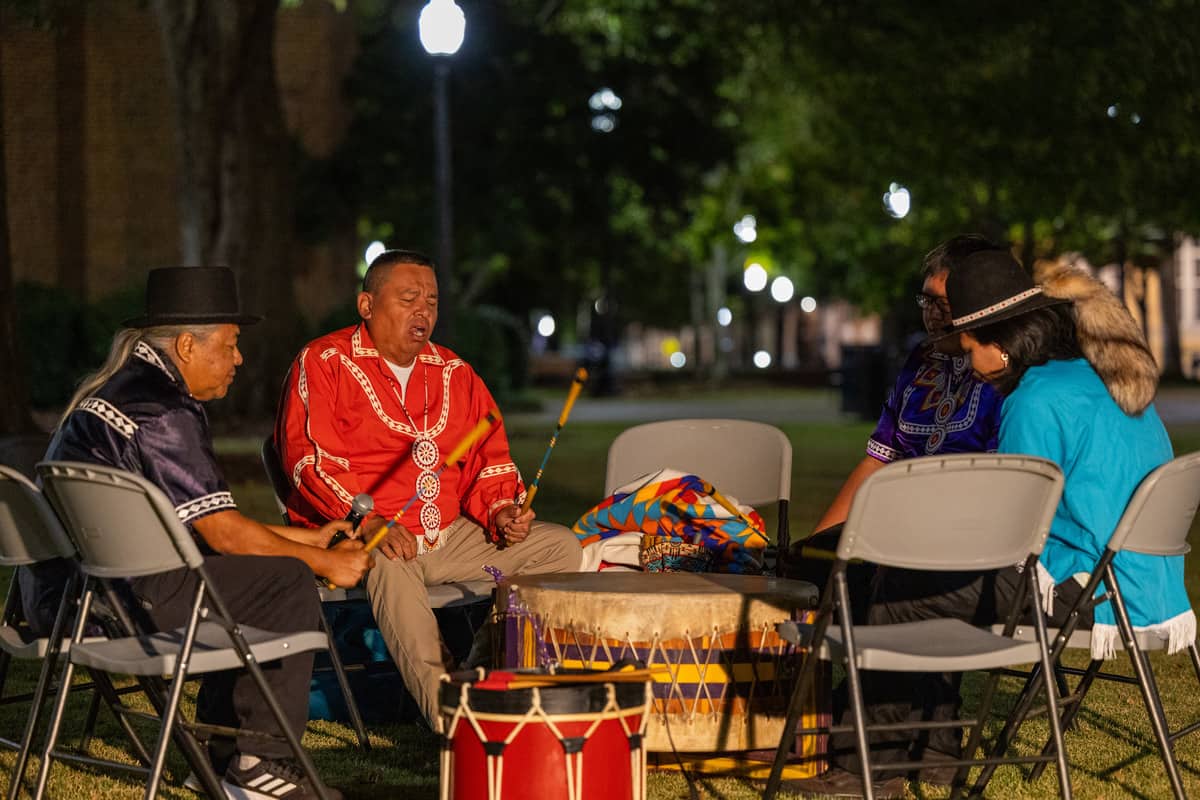During the month of November, Native American Heritage Month, UA students are trying to change the narrative that Indigenous people are “stuck in the textbooks,” in the words of Native student Katarina Lowell.
The Bama Indigenous Student Organization Network, a student group founded in 2022, is hosting a variety of events this month aiming to showcase the lives of Indigenous people.
On Wednesday, the group hosted a pop-up cultural showcase in the Intercultural Diversity Center that displayed Indigenous jewelry and fliers providing information on Native culture and issues. One U.S. Census Bureau flier highlighted that American Indians and Alaska Natives make up 2.2% of the country’s population, or around 7.2 million people.
“We’re often portrayed as a dying race … and the whole point of having events like this is to raise awareness that our people are still alive and still resilient,” Kiana Younker, vice president and co-founder of BISON and a graduate student pursuing a Master of Fine Arts in theater and a Master of Business Administration, said.
Thursday night, the organization hosted a dance group from the Mississippi Band of Choctaw Indians to showcase traditional Choctaw dances on the Student Center Lawn.
Dan Isaac, who leads the all-ages group with his brother, said it travels from state to state performing. Isaac said he has traveled with various dance groups for around 30 years.
At the Tuesday event, the group showed Choctaw dances like the Rattlesnake Dance and the Fast Warrior Dance as well as powwow dances used by many tribes. Each had its own purpose, be it healing, blessing the earth or socializing.
Certain dances featured drumming to keep the tempo, which is representative, Isaac said, of the “heartbeat of the people and of Mother Earth.”
Katarina Lowell, a senior majoring in general studies and a member of Pokagon Band of Potawatomi, accompanied Isaac’s group near the end of the event, leading them in the Jingle Dress dance. Lowell grew up dancing at powwows in the Midwest.
Like Younker, Lowell believes cultural exhibitions like these serve to remind others that Native peoples still exist, but she added that there are more layers to such events.
“We weren’t allowed to dance for years,” Lowell said, referencing former U.S. and Canadian government policies such as those that forced Indigenous children into boarding schools that forbade displays of their culture. “So it’s really important to show that we are regular people. We’re still carrying our traditions while living in the real world, … having jobs and raising families, going to school and getting an education.”
However, she said that displaying this side of herself is not easy, and she often feels judged by her peers for embracing the Indigenous part of her identity.
BISON will also celebrate this month by holding a screening of “Reservation Dogs,” a Native-written and directed comedy series about four Indigenous teenagers, on Nov. 15 in the IDC.
Isaac said there’s a “cultural erasure” going on, and that’s something he can’t stop. Nevertheless, his group will continue to travel, dancing with smiles on their faces and educating people about Native culture.
In doing so, he says he is temporarily removing the young group members from the reservation, which is riddled with problems like drug abuse and domestic violence.
“The reservation is a prison without walls, without the bars. But I call it home,” Isaac said.
Despite this, Isaac said his people simply want to be treated with respect.
“We know who we are. And we’re still here,” Isaac said. “Because this is our home.”















